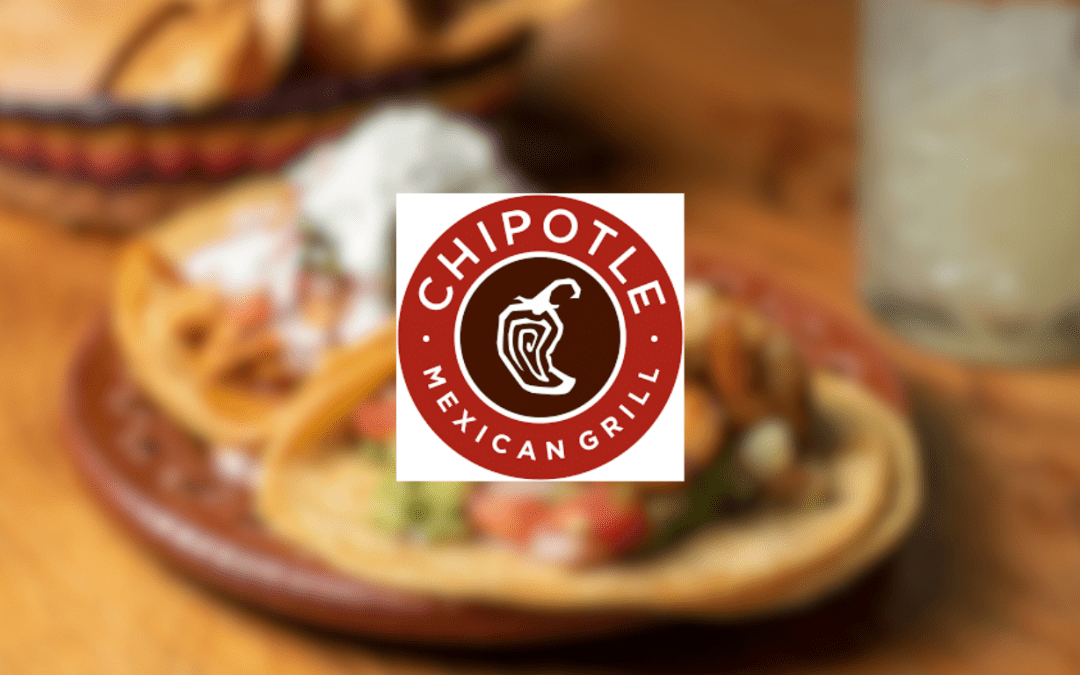Social Media Interaction
Chipotle has mastered the art of using social media to connect with its audience. Its witty and engaging posts on Instagram, Twitter, and TikTok have helped the brand build a strong online presence. Chipotle has turned its customers into brand advocates by incorporating user-generated content and word of mouth, amplifying its message.
Chipotle’s cultural branding strategies encompass its marketing strategy, celebration of National Burrito Day, active engagement with a specific target audience, and strong social media presence.
National Burrito Day is an annual celebration of the beloved burrito, typically held on the first Thursday of April. This day is an opportunity for restaurants, especially Mexican and Tex-Mex establishments like Chipotle, to engage with customers and celebrate this popular food item.
- Promotions and Discounts: Chipotle offers special discounts on this day to attract customers. It includes offers like “Buy One, Get One Free” burritos or discounted burrito bowls.
- Digital Marketing Campaigns: Chipotle uses its media accounts and website to create daily buzz. They may share engaging content, create hashtags, and run contests or giveaways to involve their online community.
- Engaging with Customers: Chipotle invites customers to share their experiences on social media by utilizing certain hashtags. They ask customers to vote on their favorite combinations or share their customization tips.
- In-Store Experience: Inside Chipotle locations, staff may dress in festive attire, play Mexican music, and decorate the restaurant to create a festive atmosphere for customers celebrating Burrito Day in-store.
- App and Online Ordering: Chipotle’s mobile app and online ordering platform can be optimized for Burrito Day promotions, making it convenient for customers to order their favorite food for takeout or delivery.
Chipotle strengthens its brand presence, attracts new customers, and rewards loyal patrons, ultimately driving sales and reinforcing its position as a leading fast-casual restaurant chain known for its delicious burritos. It represents a commitment to quality, sustainability, and innovation. Using words like “Food with Integrity” and “Cultivate a Better World” in its branding reinforces this message. Chipotle’s branding efforts have created a loyal customer base that identifies with its values.
Here are a few strategies that Chipotle applies to putting itself in the elite league:
Target Audience
Chipotle’s marketing efforts are carefully tailored to resonate with its audience. Primarily health-conscious millennials and Gen Z. By emphasizing fresh ingredients, customizable options like the burrito bowl, and sustainability initiatives, Chipotle appeals to a demographic that values quality and social responsibility.
Creative Marketing
Chipotle’s marketing campaigns are known for their creativity. The brand uses humor, storytelling, and visually appealing content to engage its audience. The “Friend or Faux” campaign, where customers can get a free burrito if they bring their “best friend,” is a prime example of Chipotle’s inventive approach.
Embracing Food Culture
Chipotle’s core strategy revolves around serving “Food with Integrity.” They prioritize sourcing high-quality, sustainable ingredients and supporting local farmers. This commitment to ethical sourcing aligns with the growing cultural trend of conscious consumerism, where people seek products and brands that reflect their values.

Authentic Mexican Inspiration
Chipotle draws inspiration from traditional Mexican cuisine, which resonates with consumers looking for authentic and flavorful options. Mexican culinary techniques and flavors are crucial to Chipotle’s cultural branding strategy, allowing them to stand out in the fast-food market.
Customization and Personalization
Chipotle’s “Build Your Own” model encourages customers to customize their meals, tapping into the cultural shift towards individualized choices. This method offers customers a sense of control over their meals, which improves the whole dining experience.
Transparency and Open Kitchens
Chipotle’s open kitchen concept aligns with the cultural shift toward transparency in food preparation. Customers can watch their meals being made, reinforcing the brand’s commitment to freshness and quality.
Cultural Engagement through Marketing
Chipotle has consistently engaged with popular culture through marketing campaigns. They have partnered with musicians, artists, and influencers, creating a buzz around their brand and appealing to a younger, socially conscious demographic.
Environmental Responsibility
Chipotle’s sustainability initiatives resonate with the cultural movement toward environmental responsibility. Initiatives like reducing waste, using compostable packaging, and responsibly sourcing ingredients showcase their commitment to a healthier planet.
Digital Engagement
Chipotle has adapted to the digital age by embracing technology and engaging customers through mobile apps and online ordering. This approach aligns with the cultural shift towards convenience and technology-driven experiences.
Supporting Local Communities
Chipotle actively supports local communities through initiatives like the Chipotle Cultivate Foundation, which promotes education and sustainable farming practices. This involvement connects with consumers who prioritize businesses with a social conscience.
Crisis Management and Recovery
Chipotle faced food safety issues in the past, which threatened its brand. However, the company responded by enhancing its safety protocols, demonstrating its commitment to consumer well-being, and gradually rebuilding trust.
Global Expansion
While rooted in Mexican culture, Chipotle’s branding allows it to adapt and expand into international markets. They can tweak their menu to accommodate local tastes while maintaining their core values.
Summary
Chipotle’s digital marketing strategy is characterized by its active social media presence, content marketing, mobile app and online ordering capabilities, loyalty program, influencer partnerships, personalized email marketing, content accessibility, and commitment to social responsibility. These features combine to form a unified and compelling web presence, strengthening Chipotle’s status as a fast-casual dining market leader.

